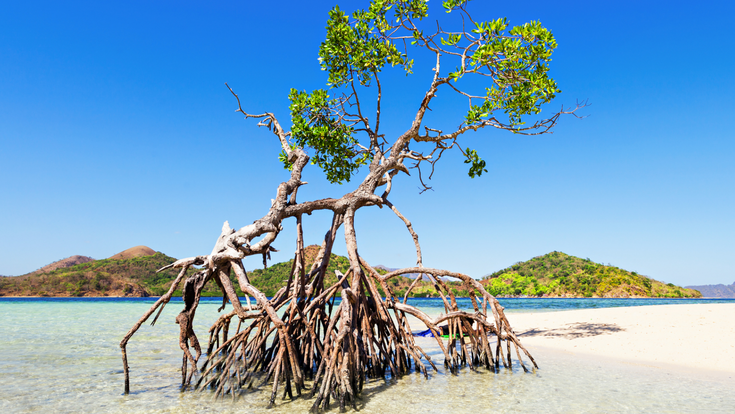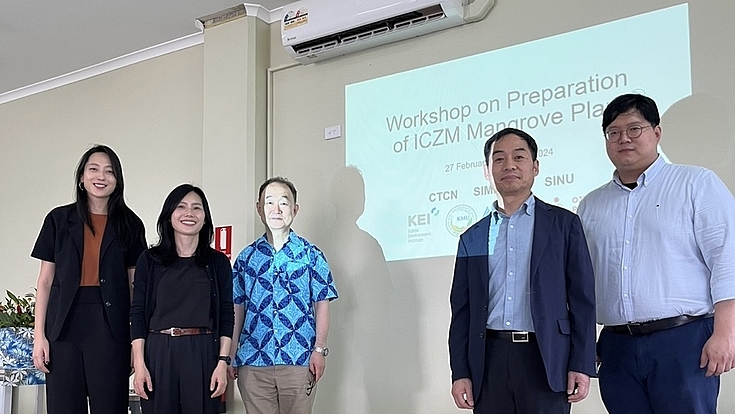Conference
ICZM Conference on the Solomon Islands

Who does not like the idea of lounging on a beach, soaking up the sun, feeling the soft sand beneath, and dipping into the warm water of the ocean? When we think about coastlines, these idyllic images often spring to our mind first. Yet, beyond being a haven for vacation and relaxation, coastal areas are unique ecosystems, sustaining communities through various means such as tourism, fishing, aquaculture, and associated industries. They play a vital role not only for coastal inhabitants but also for inland regions.
However, coastal areas and their marine ecosystem are profoundly vulnerable to the repercussions of climate change. Consequently, some governments have decided to take action to safeguard both their people and environments. The Solomon Islands, for instance, proposed the Integrated Coastal Zone Management (ICZM) Framework. This framework aims to promote sustainable economic development, secure livelihoods of coastal communities, facilitate integrated planning and coordination of coastal developments, and conserve coastal and marine resources. Moreover, it seeks to support research and development and raise awareness for sustainable resource management, along with effectively managing the risks caused by climate change.

This month’s workshop, focusing on the preparation of the ICZM Mangrove Plan, addresses another critical facet of the ICZM’s agenda: the protection of mangroves through ecosystem-based adaptations. Mangroves, an endangered tree species, are crucial for bolstering coastal areas against floods. Their complex root systems provide stability and anchorage to the surrounding terrain. Their protection is therefore imperative to effectively combat the impacts of climate change on coastal areas.
Dr. Hyunah Choi, a senior researcher at the Hanns – Seidel Foundation Korea, played a pivotal role in the conference, delivering speeches on the topic of a “Rapid Ecosystem Services Assessment”, aimed at enhancing risk management strategies for natural disasters.
With average temperatures steadily rising, the full extent of climate change’s consequences has only begun to unfold. It is therefore crucial to develop strategies not only to mitigate global warming but also to lessen the impacts of its consequences. Conferences focusing on the ICZM Framework or the rapid ecosystem services assessments are thus instrumental in conserving coastal ecosystems and preserving the allure of coastlines for generations to come.
